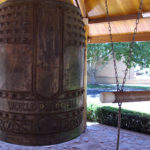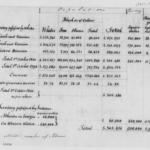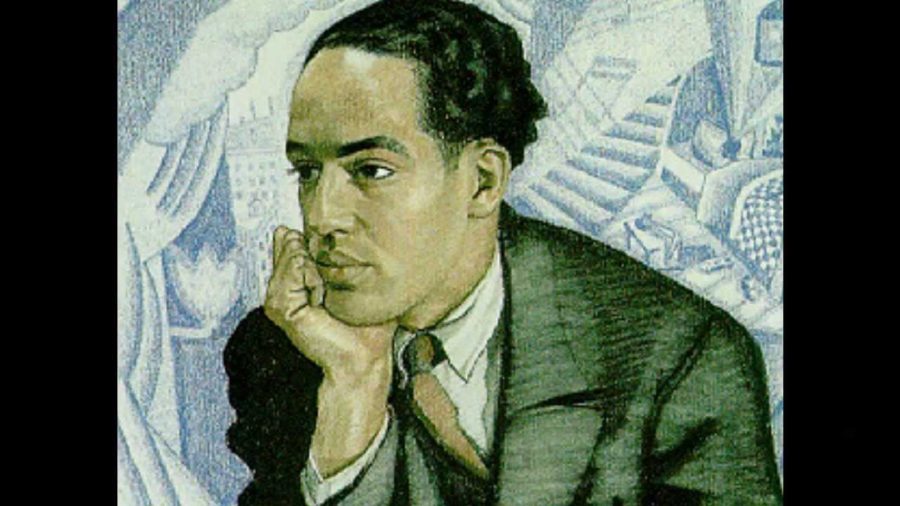
John Donne’s For Whom the Bell Tolls: with translation
John Donne’s passage For Whom the Bell Tolls is most familiar to audiences of our time through Ernest Hemingway’s novel of the same name, set in the Spanish civil war. John Donne’s words are often understood today as a poem (and they are indeed poetic). However they come from a book of devotions, and a longer contemplation on the meaning of the bell. John Donne lived in seventeenth century England. The tolling of the bell was a constant reminder of the call to prayer, and when in 1624 he wrote the passage, John Donne was Dean of St. Pauls (then one of the highest offices of the Anglican church).
Il brano da John Donne Per chi rintocca la campana, è meglio conosciuto al pubblico della nostra epoca dal romanzo di Ernest Hemingway, dello stesso titolo, ambientato nella Guerra Civile Spagnola. Le parole di John Donne sono interpretate oggi come un poema (e infatti sono poetiche). Le parole vengono però da un libro di devozioni, e una contemplazione più lunga sul significato della campana. John Donne visse in Inghilterra nel seicento. I rintocchi della campana erano un ricordo costante del richiamo alla preghiera, e quando ha scritto il passaggio nel 1624, John Donne era il Decano di St. Pauls (uno degli uffici più importanti della chiesa anglicana).
One of the most important occasions on which a bell was rung, was to mark someone’s death. The tolling of the funeral bell has a particular recognisable sound. It is the slow tolling of the bell. From it we take the phrase “death knell.” Such use of the bell is found in Italy as much as in England.
Una delle più importanti occasioni in cui la campana era suonata, era per segnalare la morte di qualcuno. Il rintocco della campana della morte ha un suono particolarmente riconoscibile. Da quel suono abbiamo (in inglese) la frase “death knell”. Tale uso della campana si trova in Italia quanto in Inghilterra.
Ernest Hemingway’s antiwar novel uses John Donne’s words to prepare us for the themes of brotherhood that is threaded through his story. Set in the mountains Sierra de Guadarrama between Segovia and Madrid, a band of republican fighters suffer together as they they fight in the mountains.
Il romanzo contro guerra di Ernest Hemingway adopera le parole di Donne per preparare i lettori ai temi di fratellanza trovati nel libro. Ambientato nelle montagne di Sierra de Guadarrama fra Segovia e Madrid, una banda di combattenti repubblicani soffrono insieme mentre lottano tra le montagne.
It is country we have travelled. The mountains rise high and steeply dividing the otherwise prairie-like landscape. It is dramatically beautiful country: an evocative setting for a war novel. Of course, Hemingway’s use of the Donne is particularly poignant in the context of characters whose task killing those for whom the bell will toll.
È un paesaggio che abbiamo percorso. Le montagne salgono alte e ripide separando un territorio caratterizzato da pianure. È un paese bellissimo: un’ambientazione evocativa per un romanzo di guerra. Certamente, l’uso che Hemingway fa di Donne è particolarmente toccante nel contesto dei caratteri che hanno il dovere di uccidere quelli per cui la campana rintoccherrà.
For Whom the Bell Tolls
Per chi rintocca la campana
No man is an island,
Entire of itself.
Each is a piece of the continent,
A part of the main.
If a clod be washed away by the sea,
Europe is the less.
As well as if a promontory were.
As well as if a manor of thine own
Or of thine friend’s were.
Each man’s death diminishes me,
For I am involved in mankind.
Therefore, send not to know
For whom the bell tolls,
It tolls for thee.
by John Donne
Nessun è un’isola a se stesso,
Da solo intero.
Ognuno fa parte del continente,
Parte della marea,
Se una zolla è spazzata via dal mare,
L’Europa è meno.
Come se un promontorio lo fosse.
Come se una tua villa
O quella di un amico lo fosse.
La morte di ogni uomo mi riduce,
Giacché faccio parte dell’umanità
Dunque, non mandare a sapere,
Per chi rintocca la campana,
Rintocca per te.
Italian translation by Michael Curtotti
With grateful thanks to Azzurra Cirrincione for her proofreading of the Italian translation.







